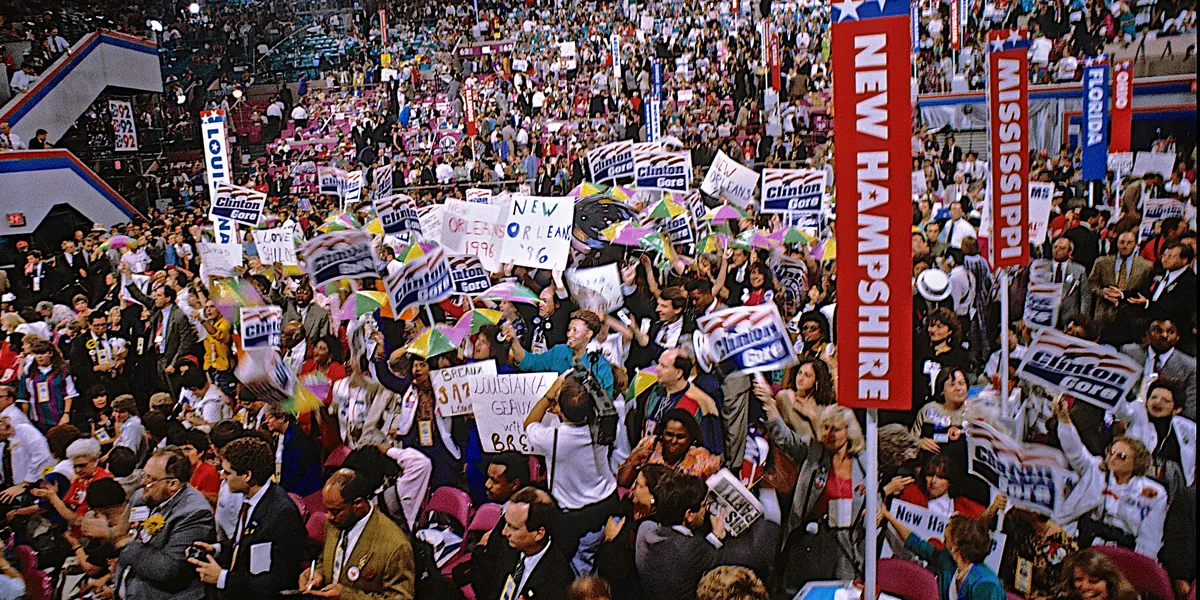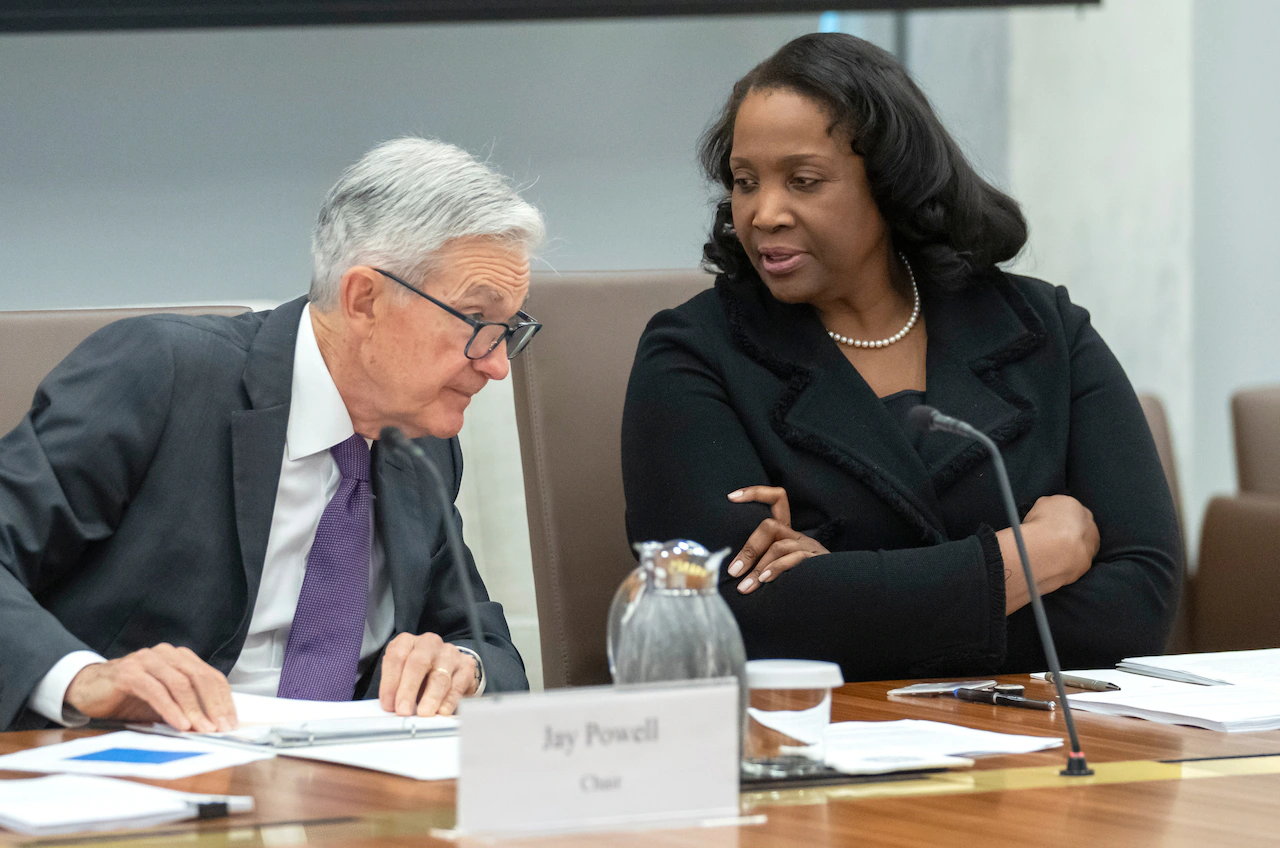
When the U.S. Department of Justice asked Kansas Republican Secretary of State Scott Schwab to turn over a copy of his state’s full voter list, including sensitive personal data, he responded with gratitude for the Trump administration.
“We appreciate the efforts of DOJ and other federal partners to assist in ensuring states have access to federal resources” to maintain voter rolls, Schwab wrote in an Aug. 21 letter to the agency.
But Schwab did not provide the full data the Justice Department wanted. Instead, the second-term state secretary of state and candidate for governor wrote that he was “initially” giving its lawyers only publicly available voter information.
As the Trump administration demands that states turn over voter data, some Republican state officials are pushing back.
At least four states with Republican chief election officials have offered public data but not the sensitive information — driver’s license and partial Social Security numbers — sought by the Justice Department, even as they take pains not to pick a fight with President Donald Trump. Another has refused to turn over any data.
One state so far has given the federal government everything and another appears likely to follow.
On Friday, Indiana Secretary of State Diego Morales, a Republican, confirmed he provided the Justice Department with all the requested data, making Indiana the first known state to hand over sensitive personal information. And in South Carolina, the state Supreme Court has cleared the way for election officials to share its data.
Many Democrats and even some Republicans fear Trump wants to use the voter data to build a federal database of voters he can use to target political opponents or hype rare instances of noncitizen voting. At the same time, supporters of the effort say the Justice Department is focused on maintaining accurate voter rolls.
For Republicans, the demands pit the traditional conservative belief in states’ authority — and their skepticism of federal power — against the will of a president who holds a vise-like grip over their party. They also come after Trump spent years advancing the false claim that he won the 2020 election.
The Justice Department, controlled by Trump allies, has contacted over half of the states and signaled it will eventually reach out to all of them, ensuring more GOP officials will likely confront choices over what to give the administration. Their responses will go a long way in determining whether the department succeeds in obtaining personal data on tens of millions of American voters.
“It raises concerns to me about trust, about transparency, about the potential for politicizing a process that folks on all sides of the political spectrum need to feel comfortable and confident is being handled appropriately,” said Matt Germer, director of the Governance Program at the R Street Institute, a center-right think tank in Washington, D.C.
Germer, who calls himself a pro-democracy conservative, said others like him, as well as many Democrats, “have some worry that this is less about building a case against specific incidents of fraud and more about sowing fear in election processes.”
While Republicans have taken varied approaches to the demands, Democratic election officials have largely spurned them. They warn Trump is encroaching on the authority of states to run elections and are fearful of how he may use the data. Some Democrats have pointed the administration to publicly available data, but others have fully refused the requests.
The Justice Department on Tuesday announced it was suing the Democratic secretaries of state in Maine and Oregon over their refusal to provide voter data. The lawsuits mark the first legal challenges the department has brought against states in its effort to obtain voter registration records across the country.
At least 27 states have so far received a demand from the Justice Department for voter data, according to the Brennan Center for Justice at New York University, which tracks the requests. Fifteen of the states were won by Trump.
Along with Kansas, Republican election officials in Alaska, Florida and Utah have so far offered only public voter data. New Hampshire’s Republican secretary of state has turned over no data, citing restrictions in state law, and Texas officials have said they can’t currently provide a copy of their voter rolls because of ongoing technical upgrades.
Since taking office in January, Trump has tried to exert unilateral control over elections, mostly unsuccessfully. Federal courts blocked an executive order in March that attempted to require voters to prove their citizenship when registering. He threatened to sign another order purporting to ban mail-in ballots but has so far not followed through.
The Constitution gives states the authority to administer elections and Congress the power to step in and set national election standards and regulations. Federal legislation that would implement a proof-of-citizenship voter registration requirement passed the U.S. House this spring, but hasn’t advanced in the Senate.
Even without a nationwide proof-of-citizenship requirement, the Trump administration is assembling a patchwork operation to find noncitizen voting, which is an extremely rare phenomenon. As the Trump administration presses states for voter rolls, it confirmed last week that the Justice Department is sharing voter data with the Department of Homeland Security, which runs a powerful online search program that can identify noncitizens and verify citizenship.
Several election experts question whether the Justice Department has the authority to demand the voter data and say it’s misinterpreting federal law. “There is zero federal law that entitles the Department of Justice to that sensitive data,” said David Becker, executive director of the nonpartisan Center for Election Innovation & Research.
The Justice Department said in a statement to Stateline that Congress gave the department authority under multiple federal laws to ensure states have proper voter registration programs and procedures to keep voter rolls free of ineligible voters. The requests for voter rolls have been made under that authority, it said.
“States simply cannot pick and choose which federal laws they will comply with, including our voting laws, which ensure that all American citizens have equal access to the ballot in federal elections,” Assistant Attorney General Harmeet K. Dhillon, who leads the Justice Department’s Civil Rights Division, said in the news release announcing lawsuits against Maine and Oregon.
Navigating DOJ demands
In New Hampshire, Republican Secretary of State David Scanlan has twice refused the Justice Department. Scanlan first declined to provide the state’s voter list in July; after the agency pressed him again, he sent a four-paragraph letter reiterating his position.
Dhillon responded to Scanlan in a letter Aug. 18 that the department was entitled to the voter data under federal record retention laws. She wrote that the agency needed the data to determine whether New Hampshire is complying with the Help America Vote Act, a 2002 federal law that revamped election administration in the wake of the disputed 2000 presidential election.
Scanlan has said New Hampshire law is clear in only permitting the secretary of state to release voter lists, without sensitive personal information, in limited circumstances. Political parties, political committees and candidates may request the list; other outside organizations and agencies, like the Justice Department, cannot.
Scanlan, first elected in 2022, has avoided politically charged rhetoric during the dispute over the voter list. He will be up for reelection next year, but not before voters. In New Hampshire, the Republican-controlled legislature elects the secretary of state every two years.
In an interview with Stateline, Scanlan said he’s approached the situation in a “matter of fact” manner.
“I know other states may have different statutes that allow them to provide that information and beyond that, I really don’t have strong feelings about where this goes,” Scanlan said.
“I’m just going to administer the New Hampshire statutes, taking into consideration what may apply at the federal level through statute or through the courts,” he said. “But for the time being, I think our position is pretty clear.”
Schwab, the Kansas Republican secretary of state, will face voters next year — but as a candidate for governor. A former state lawmaker first elected secretary of state in 2018, he is running in a large Republican primary field where candidates, including him, are competing to link themselves to Trump.
But Schwab has also long taken a clear stance against election denialism and knocked down false claims about Kansas elections. In 2022 he won a primary election, 55%-45%, that pitted him against a Republican activist who promoted conspiracy theories about the 2020 presidential election.
As the Justice Department push for voter rolls moves forward, Schwab has attempted to find a middle ground. He provided only Kansas’s public voter data, but held open the possibility of turning over more. And in his August letter to the department, he praised the Trump administration’s priorities on election security.
“We agree that routine voter maintenance is critical to ensuring accurate voter rolls and confidence in elections,” Schwab wrote.
Schwab declined Stateline’s interview request. In response to questions, John Milburn, a spokesperson for the Kansas Secretary of State’s Office, wrote in an email: “We remain in conversation with the DOJ and have no further information or comment at this time.”
Trey Grayson, a former Republican Kentucky secretary of state in the 2000s, said if he was in office, he could see potentially providing publicly available voter data to the Justice Department. The department is an entity “you have to take seriously,” Grayson said, though he added he wished it would disclose more about how it plans to use the information.
There’s also politics.
“President Trump today in 2025 is more popular, more influential, more powerful within the Republican Party than he was in 2017,” said Grayson, who sits on the board of the Center for Election Innovation & Research, a nonprofit organization that works to build confidence in elections.
Indiana, South Carolina support data sharing
Morales, the Indiana Republican secretary of state, invoked Trump when he announced last week he had shared full voter data, including driver’s license and partial Social Security numbers, with the Justice Department.
“If providing the Justice Department information can help Indiana with ensuring our voter list is accurate and up to date, we will do so. We will take all the help we can get. I am proud to work with President Trump and his administration to strengthen election integrity,” Morales said at a news conference on Friday.
A former aide to Mike Pence while he was governor of Indiana, Morales was elected in 2022 after calling the 2020 election a “scam” and writing the “outcome is questionable.”
Morales made the disclosure about the voter list in response to reporters’ questions, but he had called the news conference to highlight an alleged case of noncitizen voting by a man with a Mexican passport who had voted six times since 2018. He didn’t identify the man, and criminal charges don’t appear to have been filed.
The decision to turn over the data disappointed Julia Vaughn, executive director of Common Cause Indiana, a voting rights group. She said her organization is prepared to challenge in court any unlawful sharing of the voter list for illegal purposes.
“We’re concerned about his willingness to allow the federal government to interfere in the administration of Indiana elections,” Vaughn said.
In South Carolina, Republican Gov. Henry McMaster went to court, fighting to allow officials to share the full voter list with the Justice Department. After the South Carolina State Election Commission received a request for the voter list in August, a registered voter sued to block its release.
Last week, the South Carolina Supreme Court, in a decision on procedural grounds, cleared the way for the state to hand over the data while the lawsuit plays out in court.
Speaking with reporters earlier this month, McMaster cast the sensitive data as already in the possession of the government and pointed out that the federal government created Social Security.
McMaster noted the South Carolina Constitution contains a right to privacy, but said the Justice Department’s request wasn’t an illegal overreach. “The federal government does have the authority to ask for these things,” he said.
But as the Trump administration seeks voter lists, Germer, of the R Street Institute, voiced concern about what the demands could mean for the future. The collection effort is beginning to set a precedent and a mechanism for future data grabs, he cautioned.
“It’s important to remember that these kinds of actions don’t occur in a vacuum,” Germer said, adding that “we live in a world where one president takes action and the next president builds upon it.”



